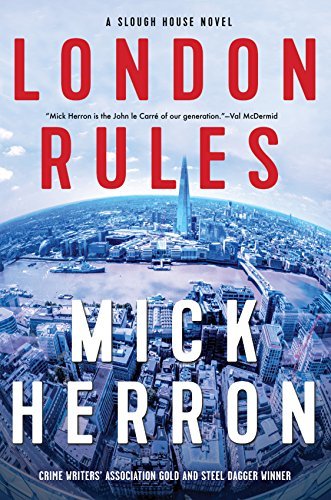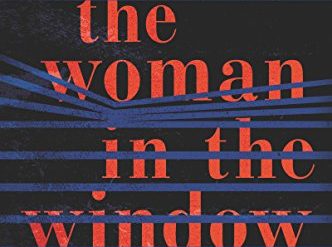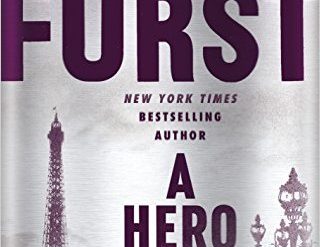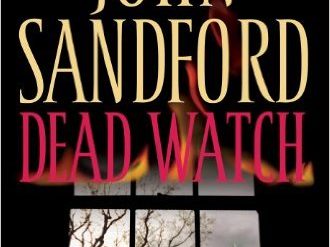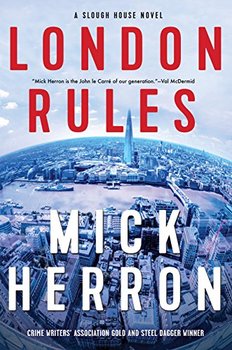
Ever since World War II, espionage has been a favorite topic of thriller writers. Authors such as Eric Ambler and Graham Greene set the tone, and some of their novels are regarded as classics of the genre to this day. In the years since their heyday (the 1930s and 40s), the genre has veered off in two directions. John le Carré took the more serious approach with the psychological depth and moral qualms of The Spy Who Came in from the Cold (1963). By contrast, Ian Fleming’s Casino Royale (1952), which introduced James Bond, took the genre into the realm of fantasy. Others have followed. Mick Herron‘s work doesn’t follow either approach. His Slough House series about MI5’s misfit spies is in a class of its own.
Estimated reading time: 3 minutes
London Rules is the sixth book in Herron’s Slough House series (if you count the novella The List as a book). It’s also far and away the funniest of the lot—and that’s an accomplishment of note. However, it’s only funny until it isn’t. The humor is virtually nonstop until very near the end: Mick Herron skillfully uses humor to ease into what is, fundamentally, a very grim story.
London Rules (Slough House #6) by Mick Herron (2018) 336 pages ★★★★★
Slough House abides, with Jackson Lamb reigning from his cluttered lair on the top floor. The veteran spy enforces London Rules, at least so far as they apply to him: “force others to take you on your own terms. And if they didn’t like it, stay in their face until they did.” The failed MI5 officers in his charge include characters familiar to readers of the series: Roddy Ho, a computer hacker whose behavior lends new meaning to the word clueless; a coke addict and bundle of repressed violence named Shirley Dander; the mysterious J. K. Coe, who seems to know far too much; Louisa Guy, who is “relatively sane”; Catherine Standish, Jackson’s able assistant, a recovering alcoholic; and River Cartwright, who should never have been assigned to Slough House. With this cast of characters, anything can happen, and it usually does.
Val McDermid, one of Herron’s contemporaries in the British Crime Writers Association, has written that “Mick Herron is the John le Carré of our generation.” This is utter nonsense. Herron is a supremely talented writer, but he is sui generis. Others—such as Joseph Kanon, Alan Furst, Charles Cumming, and Olen Steinhauer—have far better claims to that title. I’ve reviewed a number of books by each of these four authors. You can find them by typing their names into the Search box on the home page of this site.
For related reading
I’ve reviewed all the Slough House novels to date. Links to my reviews can be found here: Following Mick Herron’s clever British spies at Slough House.
You might also enjoy my posts:
- The 15 best espionage novels
- Good nonfiction books about espionage
- The best spy novelists writing today
- Top 10 mystery and thriller series
And you can always find my most popular reviews, and the most recent ones, on the Home Page.

